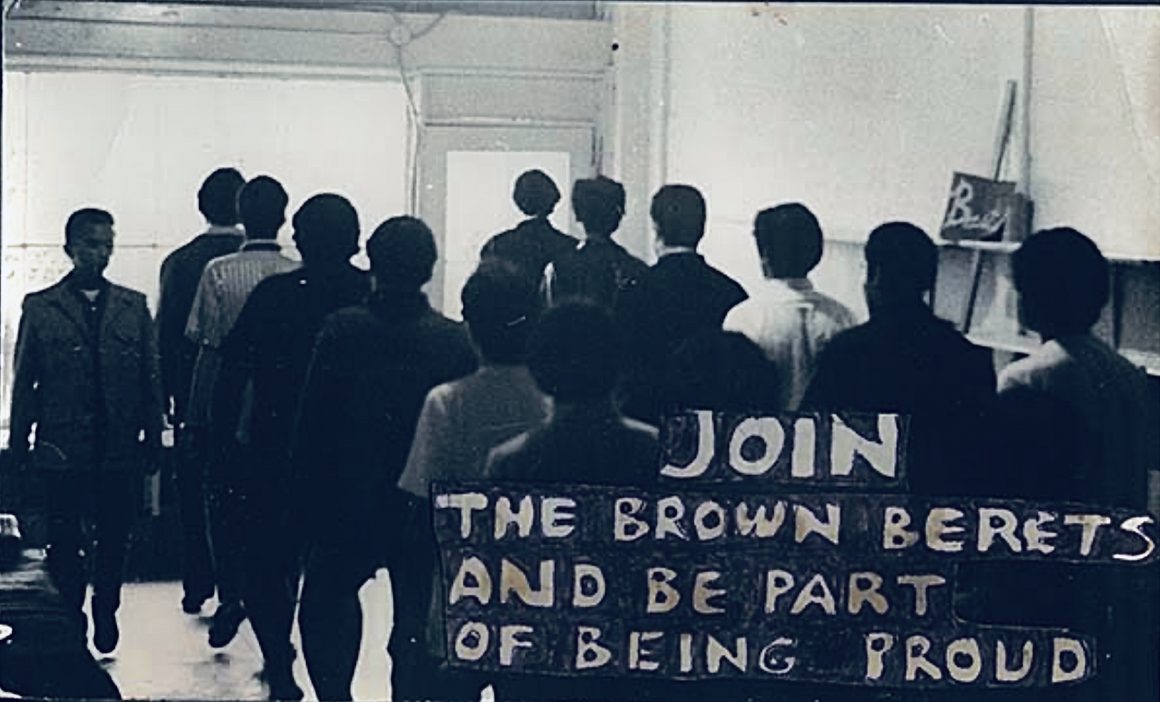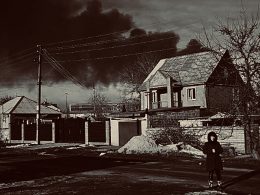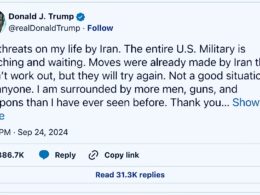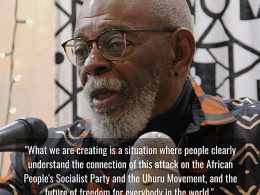I’ve written about how especially in the core of imperialism, gangs have a fundamentally reactionary nature. Despite the attempts by ultra-leftists to portray them as crucial revolutionary avenues, they’re a business like any other. Gangs are military governments that function by gaining access to the underground markets which capitalism produces. They’re led by the lumpenbourgeoisie, who exploit the desperation of the lumpenproletariat—the people who’ve been pushed into society’s margins by capitalism—to gain foot soldiers for their profit ventures. This means that the CIA’s efforts to flood poor U.S. communities with drugs flows through the gangs.
Which makes it even more likely that during a revolutionary crisis, gangs will ally not with the forces for anti-colonial proletarian revolution, but with whichever side best serves the interests of the lumpenbourgeoisie. The wars that the gangs engage in will take precedence over the goals of intersectional, inter-proletarian unity that the communist movement represents, and needless violence and division will be perpetuated.
Due to this bourgeois, intelligence-aligned character of the gangs in this country, they serve as counterrevolutionary weapons in the class war. When communists within these gangs have tried to turn them into revolutionary vehicles, the wars between the gangs have led to the leaderships rejecting their appeals for unity, violently putting down attempts at reform. This fits with what Marx wrote about the lumpen tending to act as the “bribed tools of reactionary intrigue.” The social ills that capitalism has created get exploited by the bourgeoisie, both lumpen and regular, to weaponize gangsterism against revolutionary organizing. This is the conclusion I’ve come to about gangs. But despite this conclusion being correct on its own, there’s further context that I didn’t see during my earlier studies on the lumpen. And it’s this context which can prevent us from taking the reactionary position on the gangs—that being that they can only be responded to with militarized police intervention—and instead take the revolutionary position.
This position is that the violence within marginalized communities can’t be ended until the conditions which produce that violence are addressed. The lumpenbourgeoisie won’t start running short on gang recruits until poverty is ended, the school-to-prison pipeline is made extinct, and policing and incarceration are abolished. Which will require abolishing the settler-colonial capitalist state, and replacing it with a federation of post-colonial workers democracies that function according to the jurisdiction of the liberated colonized nations. Under this order, whatever law enforcement or prisons that may exist will function in service of the interests of the proletariat within these nations. Not in service of the capitalists. This will mean that the drug trade as we now know it will be abolished, and those who fall victim to drug addiction are rehabilitated instead of punished. It will also mean sex workers are no longer incarcerated, a grievous human rights violation that exists under capitalism.
It’s then that the communists here will be able to suppress the gangs, like how gangs are suppressed under China’s communist party. The fact that this anti-gang suppression often serves to crush counterrevolutionary saboteurs, as the Western media laments, reflects the reactionary nature of gangs. And it hints at how organized crime will continue to be an enemy of the revolution here, one which will need to be put down for both political and human rights purposes.
Those who exploit and endanger impoverished women by pimping them, and who profit from the ravaging of poor communities by the CIA’s poison, will no longer be able to operate. But we won’t have the mass support for this campaign to liquidate the lumpenbourgeoisie until we’ve provided the lumpen with a deliverable alternative to gangsterism. Until we’ve given impoverished communities mutual aid networks, social outlets other than gangs, the resources to gain revolutionary consciousness, and (after we’ve gained power) jobs programs. This is the implication within the statements from Marx and Engels about how the lumpen are especially at risk of being swayed towards the forces of reaction; this may be true, but what’s also true is that the lumpen can be proletarianized, and therefore converted into revolutionaries. Which in our context means being brought out of feeling the material pressure to ally with the gangs, these military regimes that will command their members to betray the revolution as soon as this comes to serve the interests of the lumpenbourgeoisie.
In other words, until the wounds perpetuating the rule of the gangs are healed, law enforcement actions will continue to be ineffective against them, and will only keep furthering the harm to marginalized communities. Police don’t prevent crime under capitalism, because capitalism depends on crime to exist. Gangsterism can’t be eliminated until hunger, homelessness, unemployment, and their root causes of white supremacy and capitalism are eliminated.
We can’t eliminate them until we’ve destroyed the capitalist state, and constructed the socialist federation I’ve described. Which could take decades. But there are things we can do today to begin this healing process. We can build our organizations, and work to provide the masses with food, medical supplies, and other necessities. We can educate the masses, providing them with the materials and ideological training programs to understand revolutionary theory. We can set up community defense networks that help protect people against the violence of the American oppressor “nation,” whether this violence comes from individual bigots, fascist militias, or the police. With these resources, the lumpenproletariat will have social and material alternatives to the gangs, and will have a tangible reason to ally themselves with the communists over the lumpenbourgeoisie.
The Black Panthers provided these outlets for their communities, and their work is being continued by organizations like the Brown Berets and the Not Fucking Around Coalition. The former are distributing resources to better their communities, and the latter are providing armed muscle to counter the white supremacists. Both play crucial roles in bringing this continent’s underclass out of the desperate position that capitalism and settler-colonialism have forced it into. This applies to the white lumpen in addition to the colonized lumpen, because even though the white lumpen are settlers, they’ve been pushed into functionally the same socioeconomic role. Therefore, the abolition of the United States and the construction of socialism are in their interests as well. As are the community-building actions that our social movements are currently engaged in.
The lumpen is worth our attention and investment because amid capitalism’s state of collapse, where our government is furthering the neoliberal policies which expand poverty, the lumpen is the class that’s currently growing the fastest. And it’s the class which is on the rise that has the most power to upend the social order. The caveat to this is that though the lumpen increasingly have advantage in numbers, by their nature they lack the economic leverage that the proletariat has; the fact remains that if the proletariat stopped working there would be no economy, whereas if the lumpen stopped working the economy would still exist (minus the black markets and the legal types of sex work). Therefore, we shouldn’t fetishize the lumpen or the gangs, but build the institutions necessary to proletarianize the lumpen. Which is how to render gangs obsolete.
This will be easier than my cynical take on gangsterism might have led you to believe. Because though the mafioso elements are the most common types of lumpen within media depictions, gangsters are a tiny minority of the lumpen, at least by the term’s expanded modern definition. The majority of lumpen are women, victims of economic gender inequality who’ve adopted alternative methods for survival like sex work. And this is anecdotal, but that reality is encouraging from an organizing standpoint, because in my experience it’s often women who are most reliable at doing cadre work.
This comes from their relative lack of social conditioning into machismo, which often is what’s caused men to let me down in organizing settings. Anti-intellectualism, an obsession with interpersonal dominance, and regressive social attitudes are all associated with toxic masculinity, which is the reactionary mentality that those within the lumpen’s gang element can fall into. I’ve seen evidence of this in my personal experiences with one individual who said that he was a Sureno, and who refused to learn from his mistakes after publicly threatening people on behalf of our local group. This is another way gangs can act as counterrevolutionary weapons; in my case, gangsterism fostered an individual who functionally acted as a movement wrecker. And ultimately a fascistic menace, due to his threats of violence against my cadre’s members in retaliation for their criticizing his actions. According to an ex-gang member who I’ve talked to about this experience, I shouldn’t try to recruit gang members. Because according to him, they may be especially willing to do favors, but they’re also especially impervious to important revolutionary educational tools like criticism and intellectualism.
Perhaps if I weren’t a white student from a fairly sheltered community, I would be more likely to gain the respect from gangsters necessary to break through these ideological barriers. But I’ve made peace with my limits, rather than approaching this project idealistically. The reality is that even though the lumpen has great revolutionary potential on a mass level, we won’t be able to win over every individual lumpen. Colonialism and capitalism have left much of this continent’s underclass with permanent psychological scars, whether through the generational trauma oppression creates, or through the lived trauma that many from the hood are currently dealing with due to having grown up in a violent neighborhood. This is a mass PTSD that’s akin to what a war produces, and these neighborhoods are indeed quite literally in a state of perpetual war. So it’s natural that this violence often gets replicated within the individuals who are subjected to it, reappearing in domestic abuse, needless interpersonal conflicts, and—should an organization be lax enough to allow it—reactionary individualism or adventurism that set back the revolution. Because though victims of trauma deserve empathy, one can be both a victim and an abuser.
Engels wrote that “The lumpenproletariat, this scum of the decaying elements of all classes, which establishes headquarters in all the big cities, is the worst of all popular allies. It is an absolutely venal, an absolutely brazen crew. If the French workers, in the course of the Revolution, inscribed on the houses: Mort aux voleurs! (Death to the thieves!) and even shot down many, they did it, not out of enthusiasm for property, but because they rightly considered it necessary to hold that band at arm’s length. Every leader of the workers who utilises these gutter-proletarians as guards or supports, proves himself by this action alone a traitor to the movement.” Thankfully, a study of our current conditions shows that his blanket suspicion towards the lumpen should not be repeated by us. What we must do is enforce integrity within our organizing spaces so that the lumpen’s incompatible reactionary elements don’t influence the movement, and ally with the majority of lumpen who are compatible. Then we’ll be able to end the violence which produces those reactionary elements.—————————————————————————
If you appreciate my work, I hope you become a one-time or regular donor to my Patreon account. Like most of us, I’m feeling the economic pinch during late-stage capitalism, and I need money to keep fighting for a new system that works for all of us. Go to my Patreon here.








